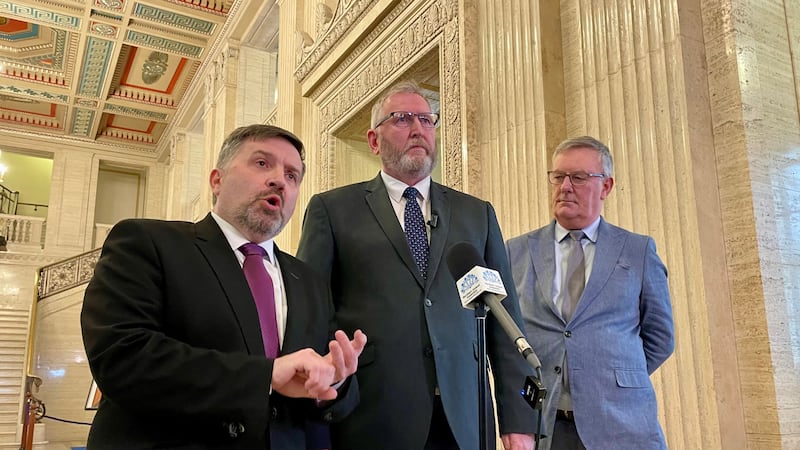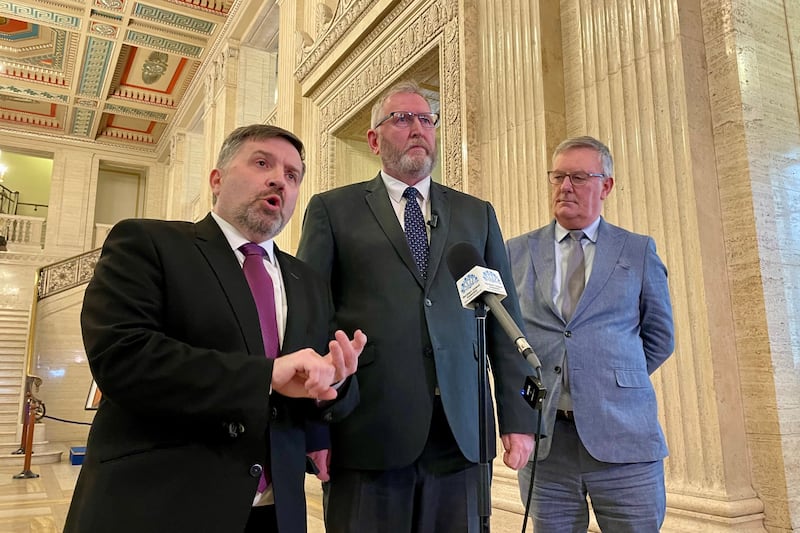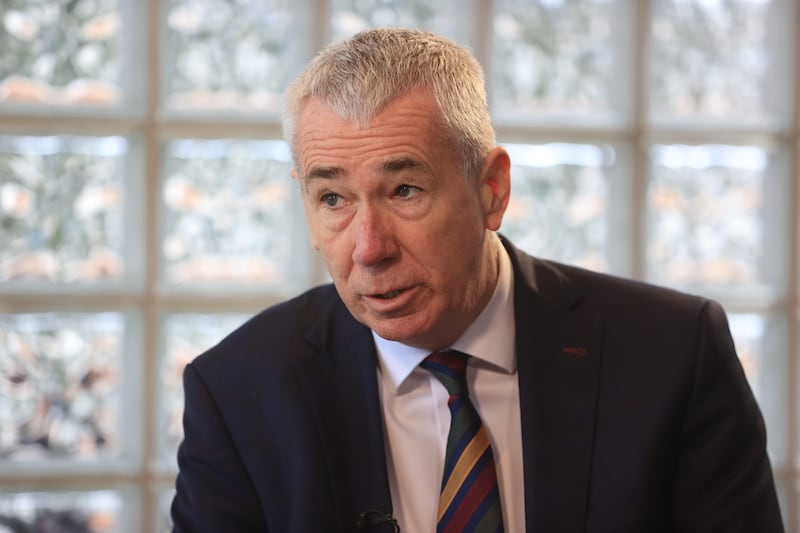ALTHOUGH it has put forward no sensible alternative, the DUP, aided by other unionist parties, says it is determined to overturn the Northern Ireland Protocol.
This is the international agreement made by the EU and the UK which governs the new Irish Sea border.
However undesirable it is - and it must be remembered that the majority of voters in the north rejected Brexit - this complex set of rules and regulations was made necessary because the DUP itself, while holding the balance of power at Westminster, ruled out every other viable alternative.
Representatives from other political parties, business and trade groups and wider society are therefore fully entitled to be intensely frustrated at the DUP's position.
Its complaints about the protocol largely amount to a critique of its own actions in recent years. They also closely match the warnings made by those who opposed Brexit, particularly the hard Brexit the DUP thoughtlessly pursued and facilitated.
There have undoubtedly been difficulties with the protocol, some of them considerable.
A portion of these are teething problems. Any reasonable observer will appreciate that these will arise with such a complicated arrangement, especially when agreed at the last minute.
With cooperation and good will on all sides, these issues can be overcome. Indeed, some already have.
However, the biggest difficulty is not so much with the protocol as with Brexit itself. Those who campaigned to leave the EU have yet to even begin to acknowledge that this is the case.
Cabinet Office minister Michael Gove and his counterpart, European Commission vice president Maroš Šef?ovi?, met last night to discuss the protocol.
There are clearly tensions not only between the British government and the commission but also between EU governments and the commission.
Taoiseach Micheál Martin referred to this yesterday when he appealed for the EU's "bigger beasts" to "cool it" in their dealings with the UK. Otherwise, there is a distinct risk that Ireland, as well as the north, could find itself as "collateral damage".
The EU could help enormously by agreeing to extend the grace period, which is due to run out at the end of March. This would allow traders and officials more time to familiarise themselves with the new systems and rules.
A mature approach, with responsible language and sensible leadership, is urgently needed - not only in London and Brussels, but in Belfast, Larne and elsewhere across the north.







